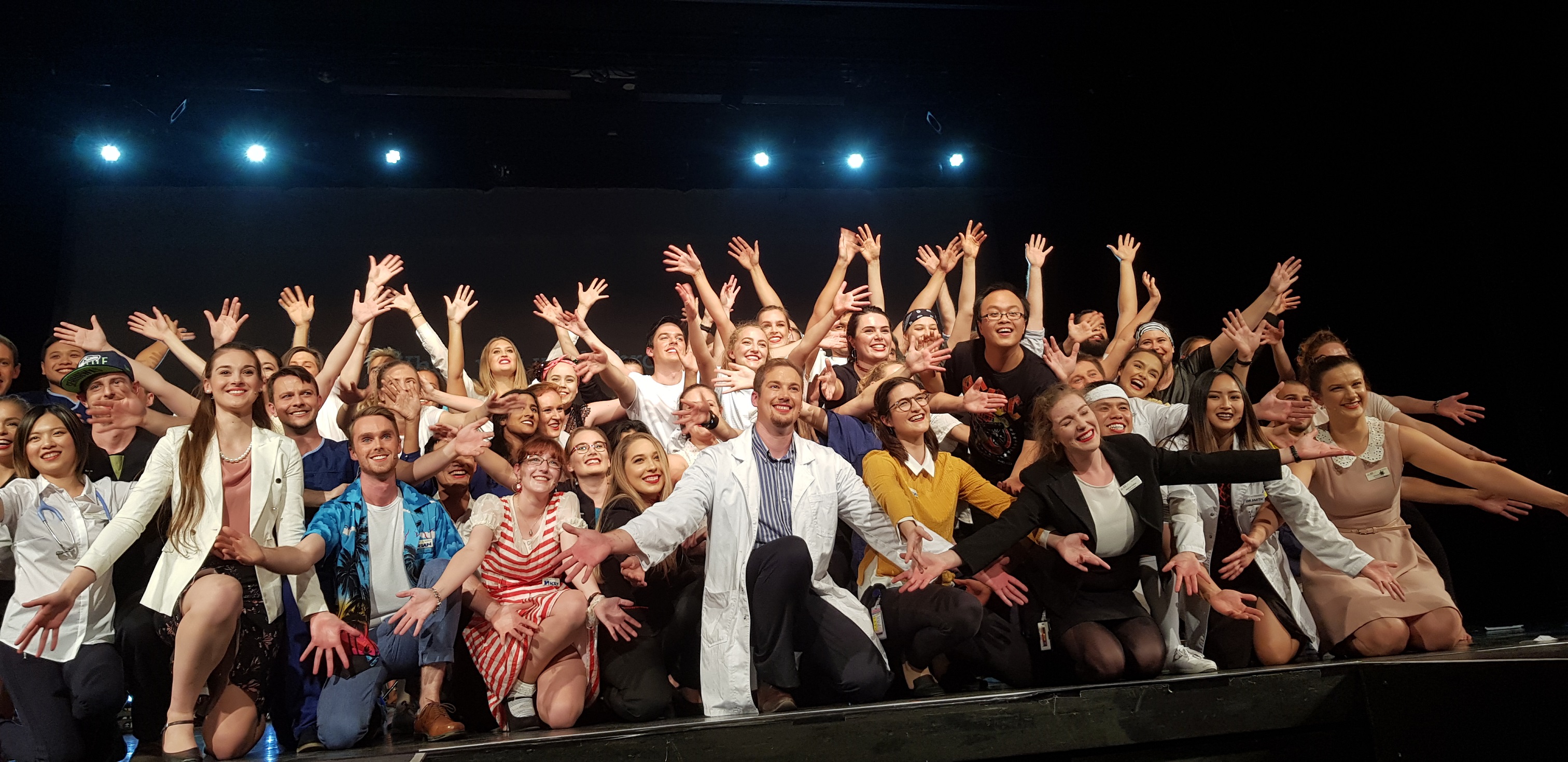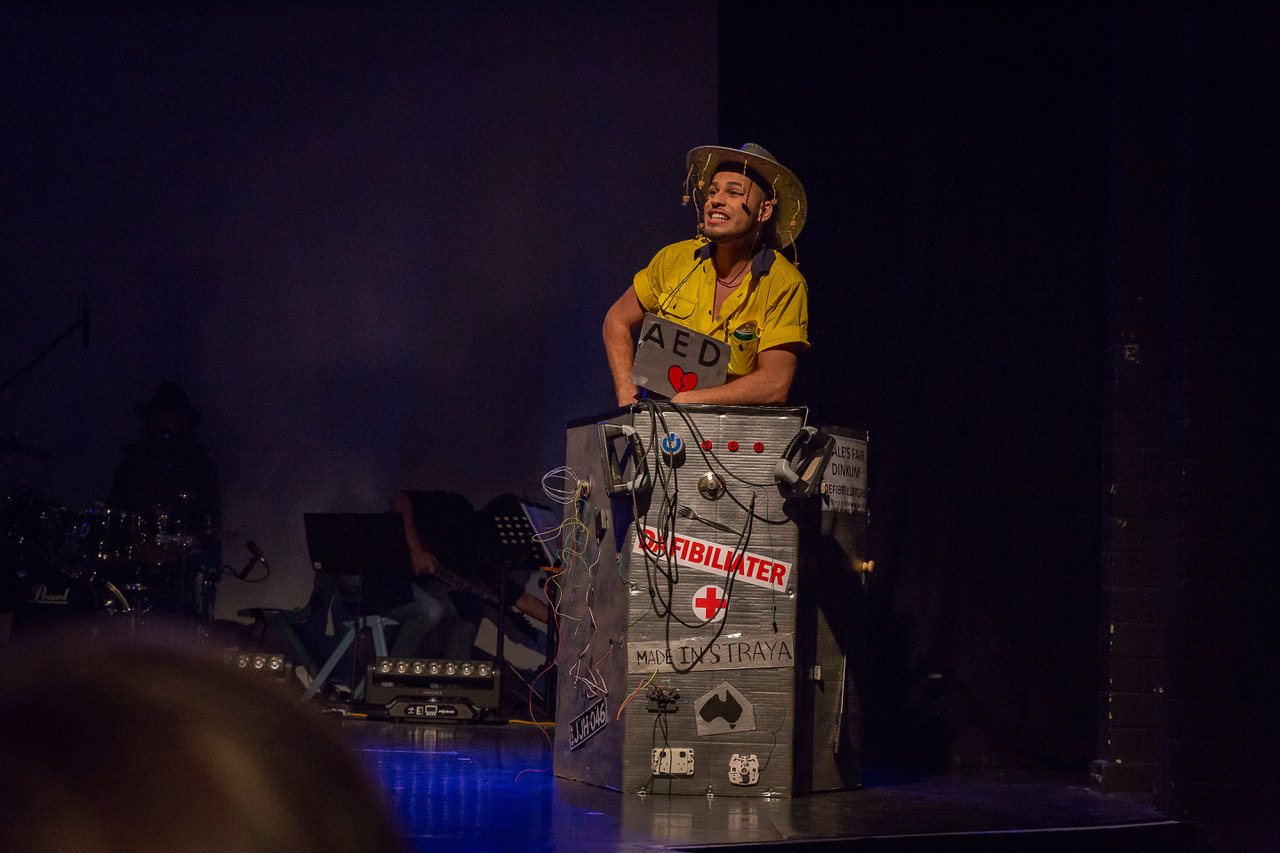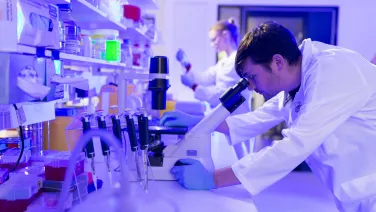Med students sing, dance – and help refugees
If you are an overworked medical student at ANU, what’s the best way to blow off steam?
Some might ask a different question: how do you find time to volunteer or raise money for a worthy cause?
According to Patrick Feeney and Michael Impelido, an answer to both questions is to join the Med Revue.
Every year, the ANU Medical School Students’ Society elects a director and a producer to undertake a massive project: coordinating about 80 students to write, rehearse, produce and perform an original musical.
This year Pat served as director and Michael served as producer to pull off Med Revue 2018: Freaky M.I. Day. As in other years, the show sold out, and performed three rollicking nights in May to happy audiences at an off-campus venue.
For the fourth year, all profits from ticket sales went to the Companion House, which cares for survivors of torture and trauma who have sought refuge in Australia. This year the production raised its largest contribution yet: $18,000.
Dr Christine Phillips and Dr Katrina Anderson, who teach at the ANU Medical School and also serve as clinicians at the Companion House Medical Service, accepted the donation on behalf of Companion House.
Dr Phillips explains the impact of the support from medical students at ANU.
“The Medical Students Fund is for medications, medical equipment and occasional medical care outside Companion House for asylum seekers, who otherwise would not be able to afford these medications.
“Prior to this fund, many asylum seekers made trade-offs between medications and food, and we could not afford to pay for essential aids or investigations.”
She continues, “The medical students are aware of the needs of this impoverished and isolated group and are motivated by a simple, but profound, desire to make change, and to improve the lives of the most destitute in our community.
“We're extremely grateful. There is no doubt that this fund has saved and will save lives for these patients.”
In addition to the satisfaction of knowing that the contribution of their time and talent has had a significant impact, the medical students had a marvellous time putting the show together.
According to the director, Pat, the script-writing team starts its work each year by asking ‘Wouldn’t it be funny if…?’ Students nominate songs to adapt and then build a storyline around the songs. This year Freaky M.I. Day was loosely based on Freaky Friday, with a ‘Dafibiliater’ accident at a hospital causing a second-year medical student to trade bodies with an experienced consultant.
Any medical student who puts their hand up gets into the show. Michael, the producer, explains.
“For things like the dancing or acting, a lot of people just do it because they want to try something new.”
For musicians in the live band, performers with theatre experience, or the creators of the clever video preambles and interludes, “it’s an opportunity for them to showcase their talent.”
What are the benefits of trading study time for rehearsal time? Michael and Pat could name several.
Pat fulfilled a long-time ambition to direct a show. “Time management is important, realising that I had to organise things a lot further in advance than I normally do, just to make sure that nothing got missed or that my studies weren’t neglected. I also made lot of friends.”
All performers and crew benefit from meeting students in other years and forming lasting friendships. But Michael and Pat pointed out that the experience could also impact students as they develop habits to become successful doctors.
Pat explained, “The creative outlet is needed, because medicine can be very stifling. Getting to throw yourself into something else is hugely beneficial for a lot of people – not only in terms of their mental health, but potentially for becoming even better doctors, because they have that outlet that means that they don’t just focus on their work.”
Michael echoed this idea.
“A big thing that they always talk about in med school is the concept of burnout and feeling mentally drained because you always have to keep up. Having rehearsals twice a week encourages the first-years to take that break for one or two hours. You just don’t think about medicine. You’re doing something that you enjoy and it’s different from your normal routine.”
Amid all the benefits of Med Revue, however, there is a down side, Pat says.
“One of the more difficult things about Med Review is getting the songs out of your head. Everyone is humming them all day.”



